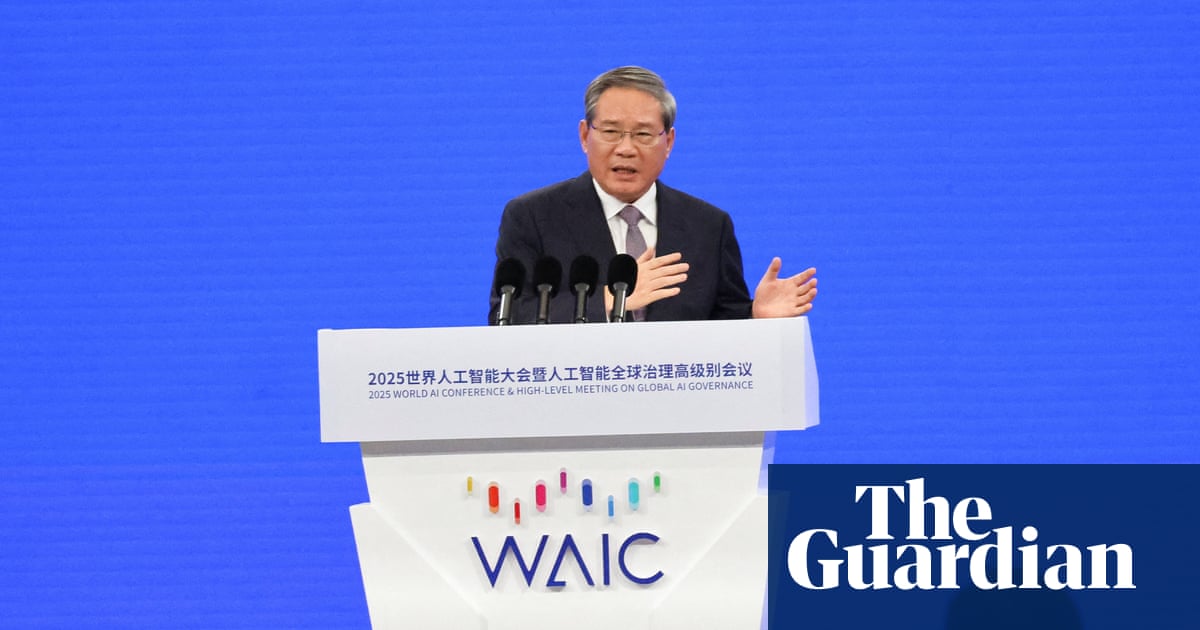Chinese premier Li Qiang has proposed establishing an organisation to foster global cooperation on artificial intelligence, calling on countries to coordinate on the development and security of the fast-evolving technology, days after the US unveiled plans to deregulate the industry.
Speaking at the annual World Artificial Intelligence Conference (WAIC) in Shanghai, Li called AI a new engine for growth, adding that governance is fragmented and emphasising the need for more coordination between countries to form a globally recognised framework for AI.
Li warned Saturday that artificial intelligence development must be weighed against the security risks, saying global consensus was urgently needed.
His remarks came just days after US president Donald Trump unveiled an aggressive low-regulation strategy aimed at cementing US dominance in the fast-moving field. One executive order targeted what the White House described as “woke” artificial intelligence models.
Opening the World AI Conference, Li emphasised the need for governance and open-source development.
“The risks and challenges brought by artificial intelligence have drawn widespread attention … How to find a balance between development and security urgently requires further consensus from the entire society,” the premier said.
Li said China would “actively promote” the development of open-source AI, adding Beijing was willing to share advances with other countries, particularly developing ones in the global south.
The three-day event brings together industry leaders and policymakers at a time of escalating technological competition between China and the United States – the world’s two largest economies – with AI emerging as a key battleground.
Washington has imposed export restrictions on advanced technology to China, including the most high-end AI chips made by companies such as Nvidia and chipmaking equipment, citing concerns that the technology could enhance China’s military capabilities.
Li did not name the United States in his speech, but he warned that AI could become an “exclusive game” for a few countries and companies, and said challenges included an insufficient supply of AI chips and restrictions on talent exchange.
At a time when AI is being integrated across virtually all industries, its uses have raised major ethical questions, from the spread of misinformation to its impact on employment, or the potential loss of technological control.
Earlier this week, news companies were warned of a “devastating impact” on online audiences as search results are replaced by AI summaries, after a new study claimed it caused up to 80% fewer clickthroughs.
The World AI Conference is an annual government-sponsored event in Shanghai that typically attracts major industry players, government officials, researchers and investors.
Saturday’s speakers included Anne Bouverot, the French president’s special envoy for AI, computer scientist Geoffrey Hinton, known as “the godfather of AI“, and former Google CEO Eric Schmidt.
Tesla CEO Elon Musk, who has in past years regularly appeared at the opening ceremony both in-person and via video, did not speak this year.
The exhibition features predominantly Chinese companies, including tech companies Huawei and Alibaba and startups such as humanoid robot maker Unitree. Western participants include Tesla, Alphabet and Amazon.
With Reuters and Agence France-Presse
